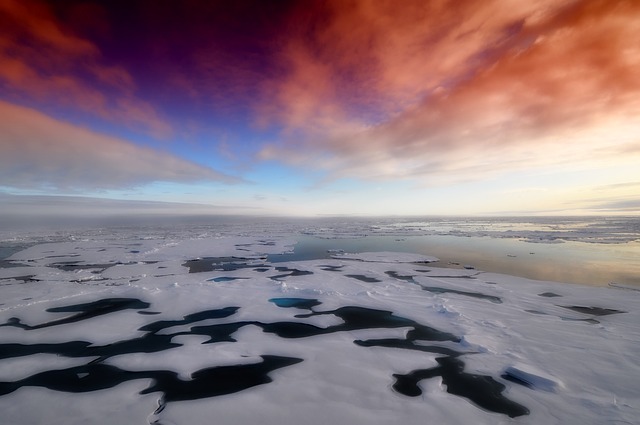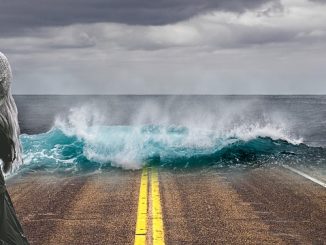
Recent discovery of 91 volcanoes underneath the massive ice sheet of Antarctica shocked scientists.
It’s been believed that East Africa has the densest region of volcanoes in the world.
However, this latest discovery shows that the West Antarctic Rift System is even much, much bigger than the East African Rift. Based on remote survey, the team from the Edinburgh University which made the discovery says there’s now a total of 138 volcanoes in Antarctica.
Over the last century, only 47 volcanoes had been recorded in the Antarctic region.
But, Max Van Wyk de Vries, an undergraduate at Edinburgh’s school of geosciences, was curious to know just how many volcanoes might be lying below the ice. With the help of glacier expert Robert Bingham, they conducted a study of the west Antarctic ice, using ice-penetrating radar carried by land vehicles and planes.
Afterwards, they compared the results with data from other aerial surveys, searching for proofs of volcanic cones underneath the ice sheet.
That was when they made the shocking discovery. There were 91 more volcanoes in the icy region, all hidden below. They range from 100 to 3,850 meters in height and some of them are covered by ice that’s more than 4 kilometers in thickness. The volcanoes are concentrated in an area called the west Antarctic rift system, a region that stretches 3,500 kilometers from Antarctica’s Ross ice shelf to the Antarctic peninsula.
The discovery was exciting for the Edinburgh team, but it has also caused serious concern.
How many of those volcanoes are active?
This has not been determined yet by the study. It’s also possible that there are more volcanoes to be found in the continent.
The world is already experiencing many adverse effects due to global warming. A volcanic explosion in Antarctica, according to the Edinburgh scientists, will cause more ice-melting and a further rise in sea level.
Based on a National Geographic report, Global Mean Sea Level (GMSL) over the past century has risen by 4 to 8 inches (10 to 20 centimeters). However, the annual rate of rise has been 0.13 inches (3.2 millimeters) a year over the past 2 decades, about twice the average speed of the preceding 8 decades.
This dangerous rise in sea levels have been caused by the following:
- Thermal Expansion: the water naturally expands when it heats up. This has been the cause of the rise in sea level over the past century.
- Melting Glaciers and Polar Ice Caps: Global warming has been causing abnormal summer melting and decreased snowfall. Winter comes late and spring comes early, a change that’s affecting not only glaciers and polar caps, but ecosystems as well.
- Ice Loss from Greenland and West Antarctica: Massive ice sheets that cover Greenland and Antarctica are melting at an accelerated pace due to persistent high temperatures. The seepage of meltwater beneath Greenland’s and West Antarctica’s ice sheets also lubricates ice streams which make them move more quickly into the sea. More ice shelves also get weakened and melted from below by the seawater with its high temperature.
Rising sea levels have terrible consequences:
- destructive erosion
- wetland flooding
- contamination of aquifer and agricultural soil
- lost habitat for flora and fauna
- more devastating storms and storm surges
- deadlier floods
- islands getting submerged
- millions of people losing their homes
“The most volcanism that is going in the world at present is in regions that have only recently lost their glacier covering – after the end of the last ice age,” Bingham told the Guardian. “Theory suggests that this is occurring because, without ice sheets on top of them, there is a release of pressure on the regions’ volcanoes and they become more active.”
How this discovery of more volcanoes in the Antarctic will impact the world remains to be seen.



Leave a Reply